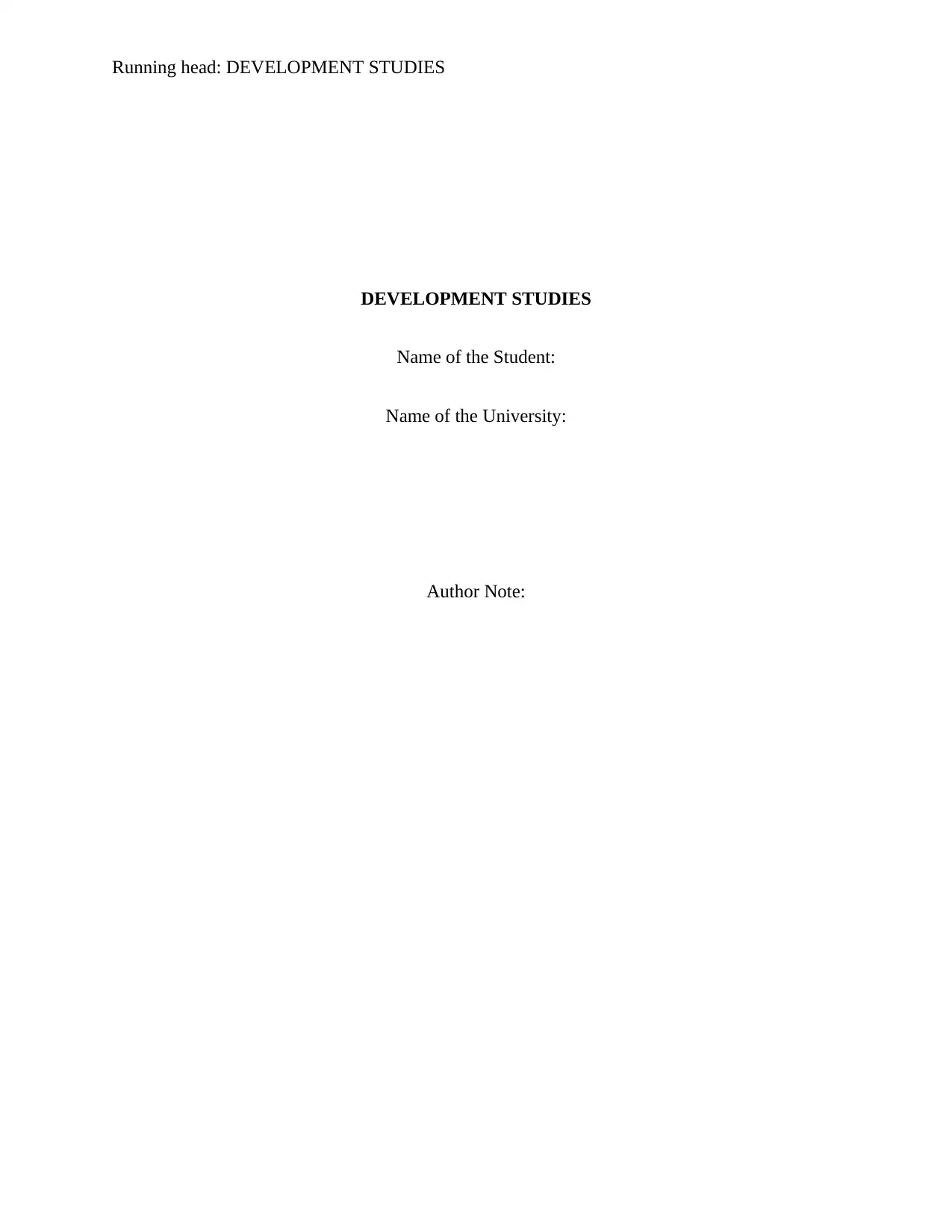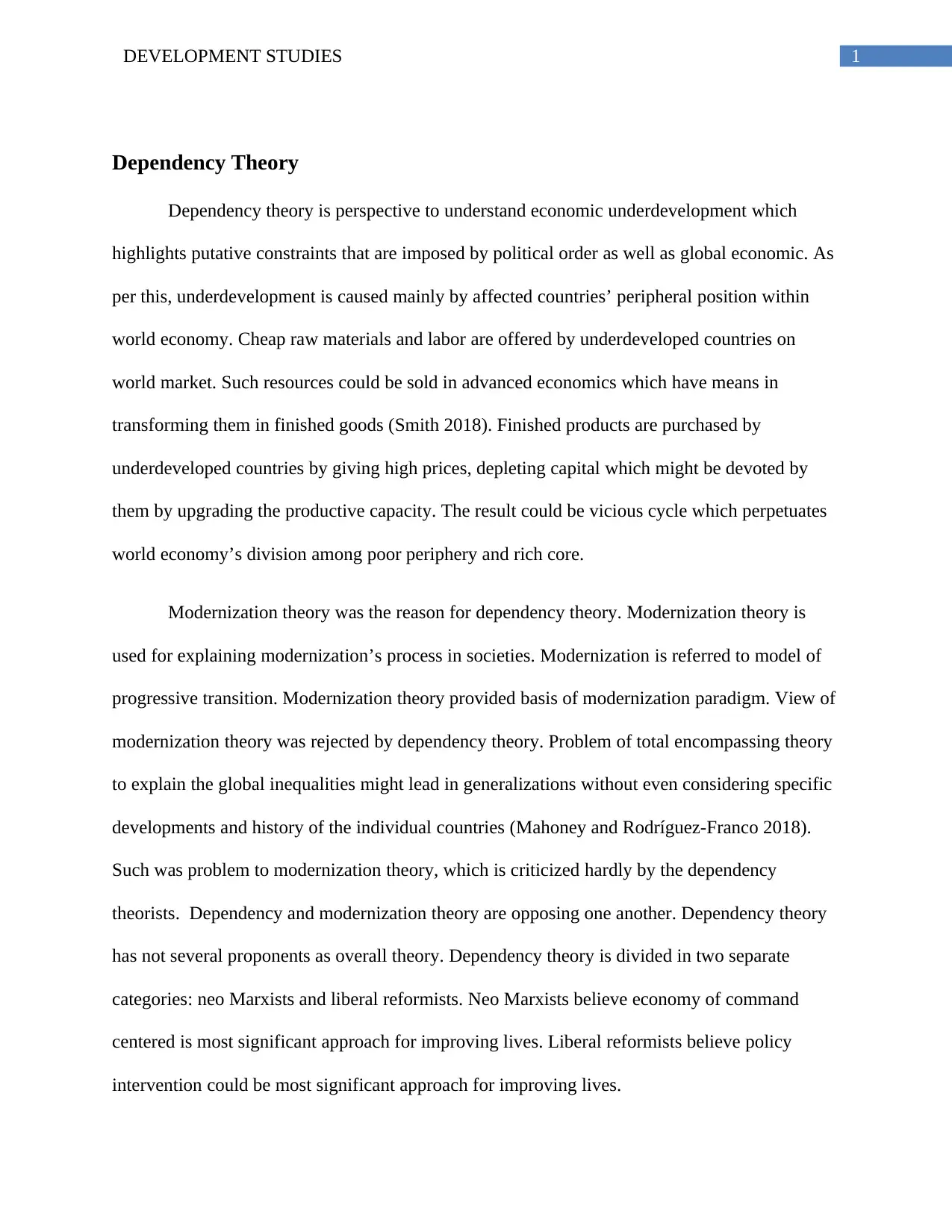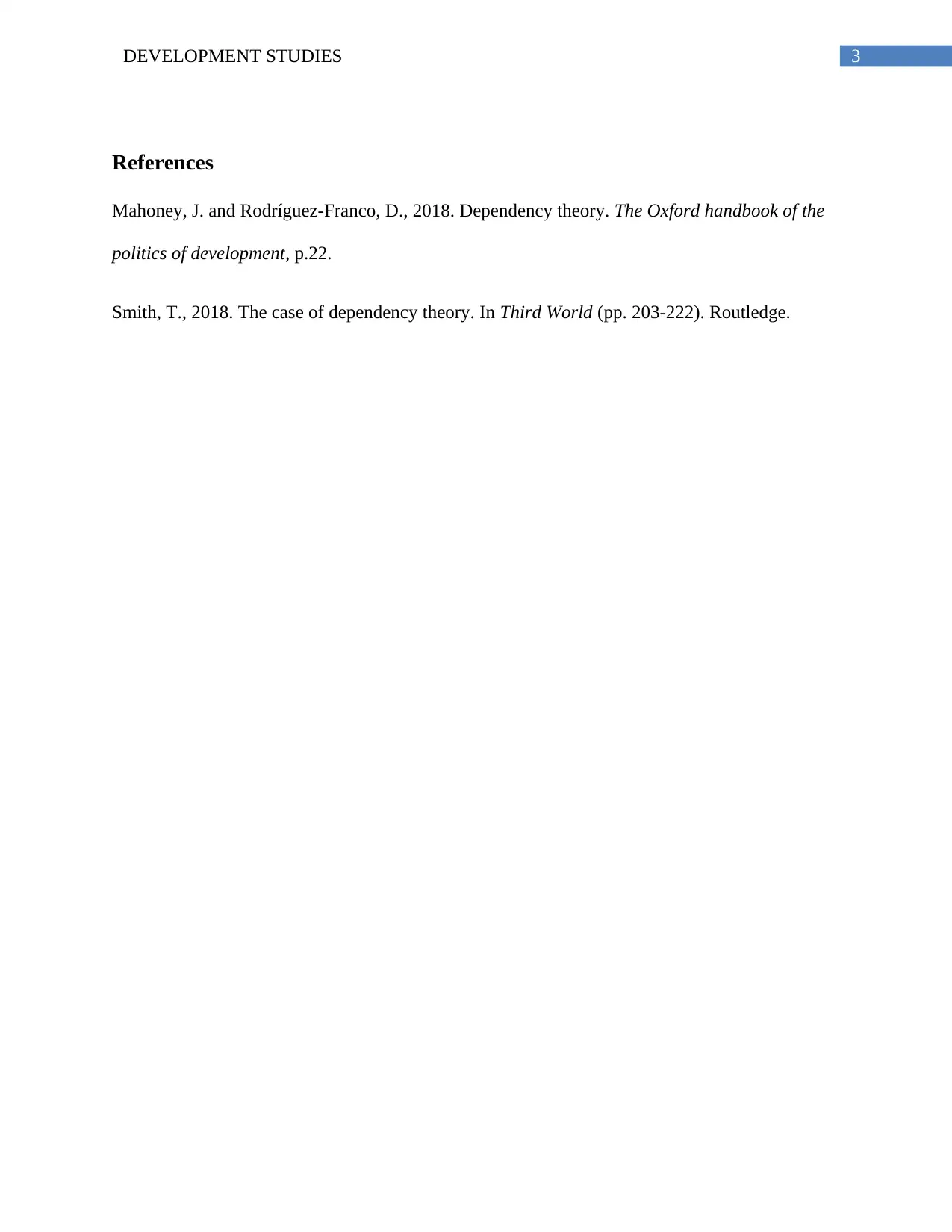Development Studies: Exploring Dependency Theory and Its Impact
VerifiedAdded on 2022/08/21
|4
|360
|28
Essay
AI Summary
This assignment delves into Dependency Theory within the realm of Development Studies, examining its core tenets and contrasting it with Modernization Theory. The paper explores the perspective that underdevelopment stems from the peripheral position of countries within the global economic system, where resources are exploited by advanced economies. It discusses the role of raw materials, labor, and finished goods in perpetuating a cycle of economic disparity. The assignment highlights the critiques of Modernization Theory and the emergence of Dependency Theory, with its various interpretations, including neo-Marxist and liberal reformist viewpoints. The paper emphasizes the implications of these theories on understanding global inequalities and the challenges faced by developing nations.
1 out of 4











![[object Object]](/_next/static/media/star-bottom.7253800d.svg)